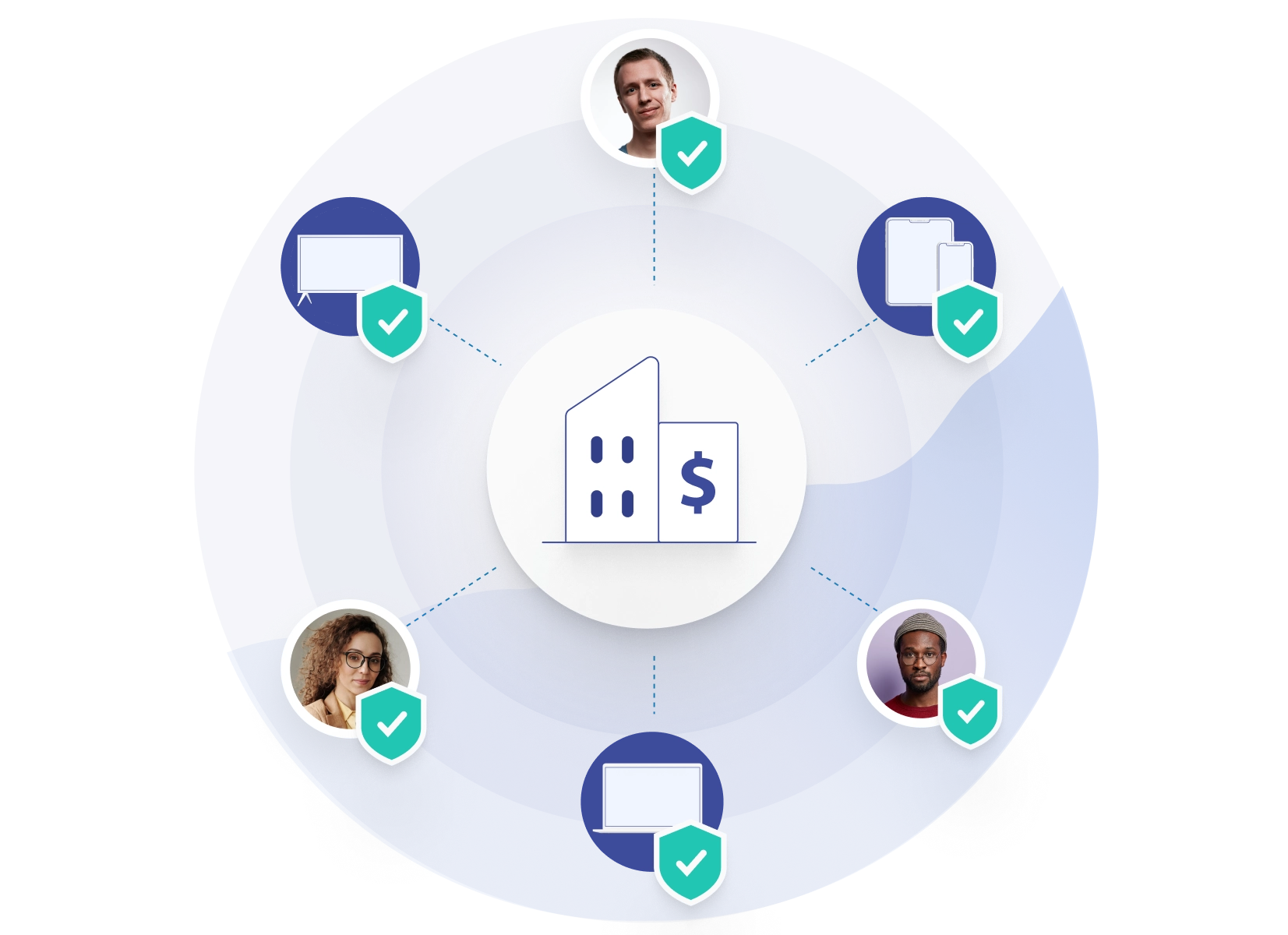CCPA compliance
How to Meet California’s Consumer Privacy Act Requirements
.webp)

Trusted by thousands of companies worldwide








CCPA compliance refers to the set of obligations that businesses must follow under the California Consumer Privacy Act to protect the personal information of California residents. It requires companies to provide transparency around what data they collect, how it is used or shared, and to give consumers meaningful control over their personal information, especially through the right to opt out of the sale or sharing of their data. CCPA compliance involves updating internal processes, implementing the right disclosure and opt-out mechanisms, honoring GPC (Global Privacy Control) signals, and ensuring that consumer privacy choices are respected across all systems and vendors.

The CCPA applies to for-profit organizations that collect or process personal information from California residents and meet at least one of the following criteria:
• Generate over $25 million in annual gross revenue
• Buy, share, or receive the personal information of 100,000 or more consumers, households, or devices per year
• Earn 50% or more of their annual revenue from selling or sharing personal information
Even businesses located outside California must comply if they meet these thresholds. As the CPRA strengthened enforcement rules, organizations should also ensure they have proper governance, vendor controls, and user-rights processes in place.

To comply with the CCPA (and its CPRA amendments), businesses must implement transparency and consumer-rights controls across their data operations.
Key compliance requirements include:
• Clear privacy notices describing what personal information is collected, how it is used, and whether it is sold or shared
• A visible and accessible “Do Not Sell or Share My Personal Information” link or mechanism
• The ability to honor GPC (Global Privacy Control signals as valid opt-out requests
• Processes to limit the use of sensitive personal information
• Tools to manage, record, and enforce user rights requests, including access, deletion, and correction
• Strong vendor management controls to ensure third parties respect user choices
• Data governance and security measures aligned with CPRA’s expanded enforcement
Didomi enables organizations to meet these requirements through transparent consent and preference collection, automated rights management, and reliable syncing of user preferences across all platforms and vendors.

Why CPRA changes everything
The compliance burden has grown exponentially

How to comply:
• Give consumers opt-out rights for the sale or sharing of personal and sensitive information.
• Display new “Do Not Sell or Share My Personal Information” and “Limit the Use of My Sensitive PI” links.
• Notify users of data-retention periods and allow correction, deletion, and portability requests.
• Respect Global Privacy Control (GPC) signals and document every consent.
• Each of these new rules adds operational complexity and legal exposure.
.webp)
What are the CCPA penalties for non compliance?
• Fines per resident affected can reach $7,500 for intentional violations; there’s no 30-day cure period anymore.
• Misconfigured banners or ignored GPC signals break your analytics and ad platforms costing revenue.
• 40 % of consumers say they switch brands after a bad privacy experience.
• Even server-side tracking isn’t exempt, opt-outs must propagate through your stack.
.webp)
How Didomi automates compliance:
• Automate CCPA/CPRA notices and DSAR flows across websites, apps, and CTV.
• Detect & honor GPC signals and block non-compliant tags automatically.
• Centralize proof of consent for audits with a single source of truth.
• Preserve measurement accuracy through Consent Mode v2 integrations.
• Personalize UX for higher consent rates and brand trust.

How to become CCPA compliant with Didomi
Assess
Configure
Integrate
Prove & optimize
Why teams choose Didomi for CCPA compliance?
Manage consent and preferences across web, mobile, apps, and CTV from a central dashboard, consistently.

Multi-regulation coverage

CPRA/CCPA, LGPD, GDPR, DPA, etc., ready for other US state laws, so you don’t have to worry about what’s changing next.

Google Consent Mode v2

Seamless Google Consent Mode v2 integration (protect measurement while staying compliant). Keep your analytics alive as privacy evolves.

Built to scale globally

Multi-language, multi-brand, multi-region, multi-domain setup for fast global rollout. Because scaling shouldn’t mean starting over.

Customization

Fully customizable UX to lift opt-in rates (and trust).

Advanced Compliance Monitoring

Audit-ready reporting and consent proof exports for regulators and DPOs.

Partnership level support

Highly responsive, guided onboarding, technical setup support and continuously improving your consent performance.
Why companies switch to Didomi











Results our clients see
%20(1).svg)

consent rate increase


Frequently Asked Questions (FAQ)
The GDPR is the EU’s data protection law, while the CCPA applies to California residents. GDPR requires a lawful basis for processing data and emphasizes consent. CCPA focuses on transparency, user rights, and giving consumers the ability to opt out of the sale or sharing of personal information.
To comply with CCPA, you must disclose what data you collect, offer a “Do Not Sell or Share My Personal Information” option, honor GPC signals, and manage user preferences. With Didomi, you can easily deploy a compliant notice, create an opt-out mechanism, store preferences, and sync them across your vendors.
Check whether you:
• Provide a compliant privacy notice
• Offer a functional opt-out/“Do Not Sell or Share” link
• Honor GPC signals
• Correctly manage sensitive information preferences
• Store and enforce user choices across your systems
Didomi helps audit and centralize these elements.
The CCPA applies to for-profit businesses that collect personal information from California residents and meet at least one of the following:
• Over $25M in annual revenue
• Buy, receive, sell, or share personal information from 100,000+ consumers
• Make 50%+ of revenue from selling or sharing personal information

